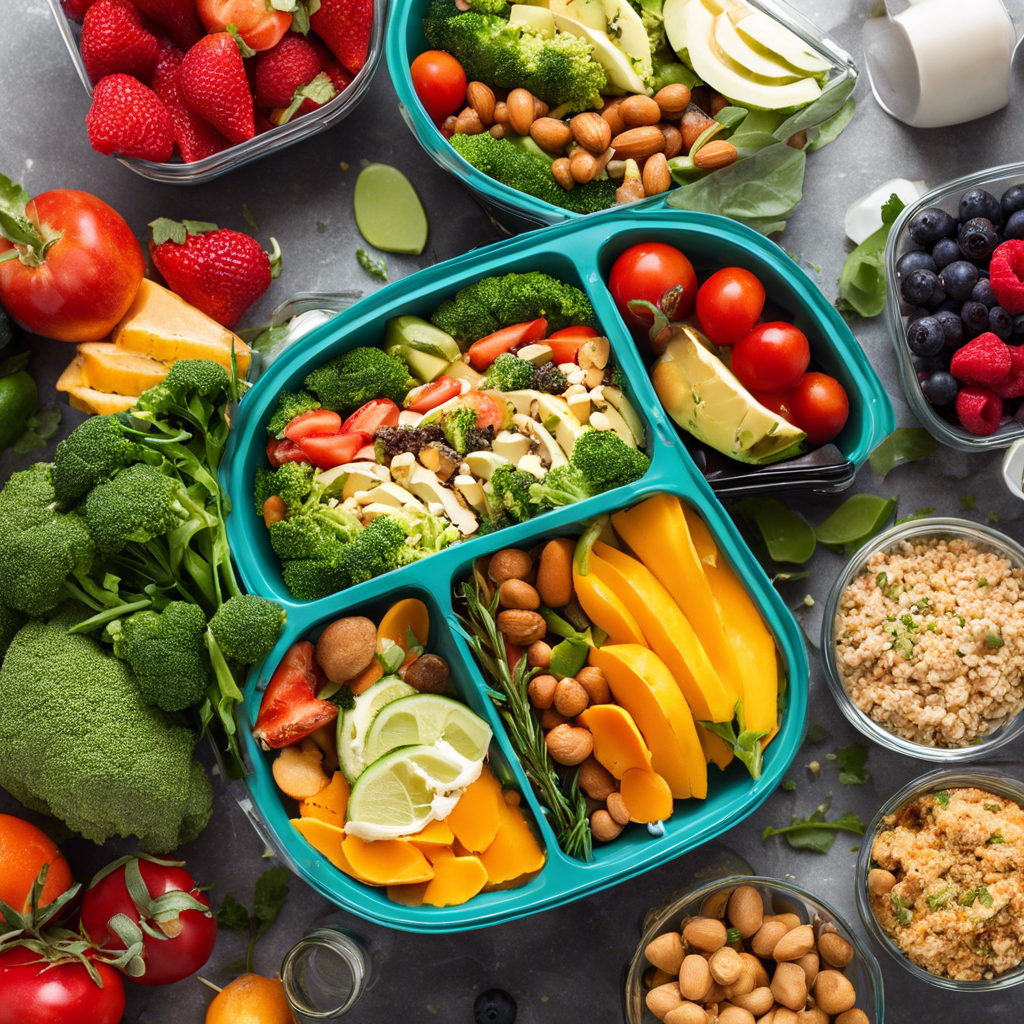Meal prepping has become an increasingly popular strategy for those looking to fuel their fitness journey and lead a healthier lifestyle. By planning and preparing meals in advance, individuals can ensure they are consuming nutritious and balanced meals that support their health and fitness goals.
One of the key benefits of meal prepping is portion control. When meals are prepared in advance, it becomes easier to control serving sizes and practice mindful eating habits. This can be particularly useful for those aiming to lose weight, as it helps prevent overeating and makes it simpler to track calorie intake. In addition, meal prepping encourages the consumption of whole foods and a more balanced diet. Taking the time to prepare meals in advance allows individuals to be more conscious of the ingredients they are using and the nutritional value of their meals.
Another advantage of meal prepping is the time and money it can save. Preparing multiple meals at once can reduce the time spent cooking throughout the week, leaving more time for other commitments or activities. It also helps reduce food waste, as ingredients are purchased with a specific plan in mind, and leftovers are less likely to be forgotten and discarded. From a financial perspective, meal prepping can lead to significant savings by reducing the tendency to order takeout or eat out at restaurants.
Meal prepping also provides the flexibility to customize meals according to individual preferences and dietary needs. Whether someone is vegan, vegetarian, gluten-free, or has specific food allergies, meal prepping ensures that meals are tailored to their specific requirements. This level of customization can also help individuals stick to their dietary restrictions and avoid making less healthy choices when on-the-go or in a rush.
Furthermore, planning meals in advance can help individuals make healthier food choices and develop a more positive relationship with food. By taking the time to prepare nutritious meals, individuals may find themselves becoming more mindful of their food intake and developing a greater awareness of hunger cues and satiety signals. This mindful approach to eating can lead to a healthier relationship with food, improved body image, and increased overall well-being.
To begin meal prepping, start by setting aside a specific day each week dedicated to planning and preparing meals. Select recipes that are balanced, incorporating a variety of proteins, complex carbohydrates, healthy fats, and an abundance of fruits and vegetables. Create a grocery list of the required ingredients, being mindful of the quantities needed to avoid waste.
When it comes to actually preparing the meals, it can be efficient to assemble multiple meals at once, especially if they share similar ingredients. For example, rice or quinoa can be cooked in bulk and then portioned out into different containers, with various protein sources and roasted vegetables added to create distinct meals. Pre-chopping vegetables and storing them in containers can also save time during the week, making it easier to throw together a quick stir-fry or salad.
Lastly, for successful meal prepping, it’s important to invest in quality food storage containers. Look for containers that are airtight, leak-proof, and microwave/dishwasher safe. Glass containers are often a good choice as they are durable and eco-friendly. By preparing meals in advance and storing them safely, you’ll always have a nutritious meal ready to fuel your fitness journey.
